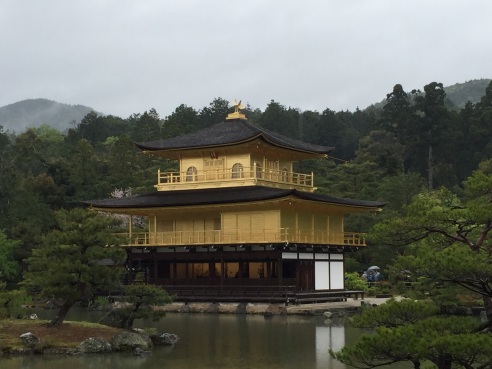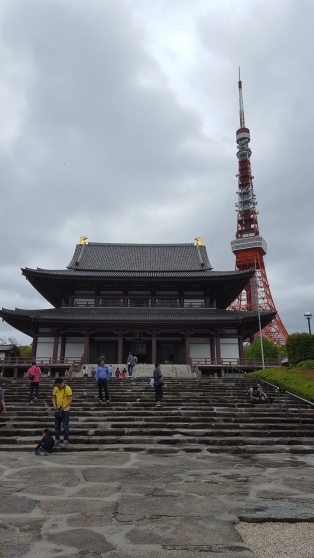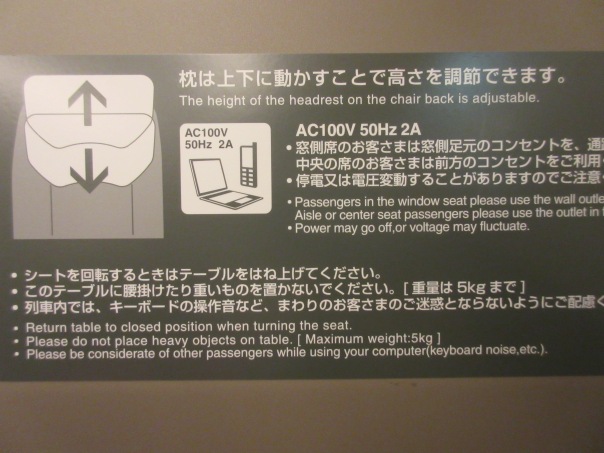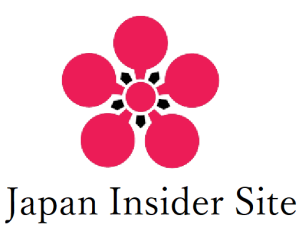
Recently in Japan, there are growing number of homes and apartments rented to short term visitors (namely, Airbnb), and they can be a real problem if the visitors are not well versed in Japanese behavioral standards. Airbnb style of renting has not been well known within Japan until just recently, and the customer base is mostly foreign visitors.

I did rent an Airbnb apartment in Osaka during our April visit, and the host was very accommodating with a lot of attention paid to her rental property. The featured image of this article is taken at Dotonbori in Osaka which was 10 minutes walk from my Airbnb apartment. My daughter rented another Airbnb apartment in Hamamatsucho, Tokyo, and had a great experience in a nicely maintained apartment in the great location. We were ignorant of any problems and backlashes to Airbnb style of renting prior to our April trip. The rented apartment was just a place to sleep at night for us, and we stayed out and did sightseeing and visiting as much as we possibly can in all hours of the day.
Since I grew up in Japan, I am familiar with how things work in apartments, so not to cause any troubles to the landlord or to the neighbors. In Osaka Airbnb unit, there was a sign on the sliding glass door to the balcony to be considerate and quiet in the room in Japanese, English, Chinese, Vietnamese, Korean, Spanish and Russian. The Japanese houses and apartments are very small and your neighbors are in close proximity to you. It doesn’t take much for the noise to carry to the neighbors. My guess is that there were few rowdy parties on the balcony in late hours and the complaints were made in the past.
Most of the Airbnb rentals in big cities are rented apartment units that are subleased to the Airbnb clients. If the renter (the Airbnb host) keeps getting complaints from the neighbors, I can see that the renter may not be able to renew his/her lease. The gentleman that I met in Kyoto on the train lives next door to the Airbnb house, and he is not a big fan of Airbnb himself. He didn’t t elaborate on the problems he has seen, but it’s not hard to imagine. There can easily be security issues since the guests are total strangers to the hosts in most cases.
While I was in Japan, I caught several different Japanese television shows reporting on the current “Minshuku”( 民宿) problem. Minshuku is the Japanese word for rented houses or apartments to short time guests. Various forms of Minshuku has been operating in Japan for a long time, but they were always operating as a licensed ryokan or inns. They used to be the means to stay in the country side of Japan where the residents open their homes to take in the guests with rooms to sleep and breakfast and/or dinner served. They were close in concept to “bed and breakfast” in Western countries.
Minshuku in the past had to pass the rigorous conditions given by the governments to keep operating with the license. Here is how Minshuku historically looked like in Japan.
The current wave of massively expanding Minshuku is unlicensed and unregulated. They are not “bed and breakfast” style inns, rather, they are just a place to stay without meals served. The hosts rent apartments under his/her name, and subrent the unit via online reservation site such as Airbnb or vrbo. In most cases, subrenting is prohibited unless it’s approved by the landlord. Since there are no local or national rules or regulations for the new form on Minshuku, it’s up to the hosts and renters to make sure things are calm and neighbors are not bothered.
I heard on a TV program that some hosts were paying for 40,000 yen ($400) per month as the rent and are generating 400,000 ($4000) per month from Airbnb subrenting. Of course the local and national government wants taxes paid from the profit, and have some means to control over the ever-expanding Minshuku problems in Japan. There are problems with unregulated safety and security concerns. I heard some talks of limiting the short term rental days to 180 days or less per year per unit, and requiring registration and licensing. It’s reported that there are anywhere between 15,000 to 20,000 Airbnb units in Japan, and the number is growing rapidly.
The main reason that Minshuku has been explosively popular in Japan is that there are not enough affordable hotel units available in popular foreign tourist destinations such as Kyoto or Tokyo. The hotels are booked up early, and the price has been going up recently (simple supply and demand).
The Japanese people go out of the way to be considerate to each other. When there are so many people living in the densely populated area, it’s necessary to coexist peacefully with your neighbors. There is a thing called “cell phone manner mode” on Japanese commuter trains. That is to mute the cell phone so that it does not make ringing or notification noise on the train. You are not supposed to talk on the phone on the commuter trains also. All for the consideration for others in your proximity.

Even on Shinkansen, you are directed to talk on the phone in the outside of the passenger compartment. I even saw a sign asking you to be mindful typing on the laptop keyboard because it can make clicking noise that can bother other passengers.
The same idea carries through to the residence. You are not supposed to bother other people in your close proximity.
So, enjoy your visit to Japan, and be mindful to your neighbors on the trains, and at the accommodations. You don’t t want to be the Gaijin (foreigners) without manners. On the other hand, I am sure my readers are sophisticated travelers, and they pay close attention to the local customs 😉

Hi Yoshida-san, I have nominated you for the Versatile Blogger Award. You very well deserve this and I just wanted to let you know about it. 🙂 http://www.japantrekker.com/nominated-for-the-versatile-blogger-award/
No obligation. You can choose to participate if you want to. Cheers!
LikeLiked by 1 person
Thanks, Michael. I admire your photographs from Japan. I think I will accept the award in the somewhat “modified” form. The details will come later. Thanks again. I feel honored!
LikeLiked by 1 person
Informative post! Thanks !
LikeLike
My partner and I stayed in an AirBnb in OKayama in April 2016. The apartment was fine. We consider ourselves good visitors and certainly respect the neighbours.
We have used Airbnb in 8 countries and have not had a bad experience yet. Howewer I have no idea if the neighbours support the Airbnb host. Also, I am getting a bit uneasy with the loss of cheaper rental accommodation that is being displaced by Airbnb.
Regarding cheaper hotels in Tokyo and elsewhere, I have made 9 trips to Japan with another one coming up in August. Mostly I use business type hotels and have never had a problem booking one. And they are cheap. Maybe many visitors a too precious when it comes to places to stay.
LikeLike
Sounds interesting! I am visiting East Asia this summer and love hearing about other peoples experiences.
LikeLike
Japan is not the only place with Airbnb rental issues. I live in Las Vegas, and Airbnb rental problem is getting big here according to the local media. Neighbors are calling police to report the excessive noise from the parties in Airbnb units. Some neighbors are reporting that they can’t sleep on weekends in their own homes because of the noise from the Airbnb parties next door. In Clark county (where Las Vegas is), you can’t rent a house for a shorter period than one month if you go by the book. I am guessing that the visitors to Las Vegas and visitors to Japan behave quite differently, but the problem seems universal.
LikeLike
I think Japanese business hotels are reasonable if you book well in advance and if you are looking for a room for up to 2 people. It’s gets very difficult to find a room for 3 or 4 people at reasonable rate. You have to get 2 rooms in most cases, that makes the hotel rate to double for the parties. I had 3 people in my party, and the Airbnb rental for 6 days gave me lots more rooms, and saved me lots of money in April.
Since 2015, I have been back to Japan 4 times. I noticed the hotel room price is on the rise each time I checked the rate.
LikeLike
Reblogged this on motto.media.
LikeLike